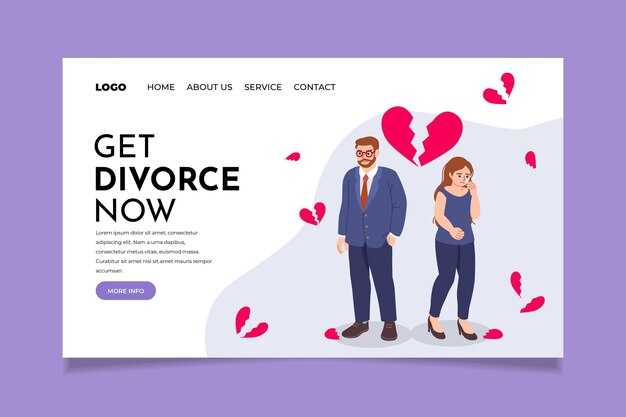This is the reason a narcissist often insists on staying friends after a breakup. At the start of your relationship it felt electric, didn’t it? It was as if you were perfectly matched, as though they understood you in a way no one else ever had. You let yourself get close, and almost immediately they began casually mentioning their many friends — some they’d slept with in the past, some who seemed like they might still be sleeping with them. You had a weird unease about it but felt awkward to ask; it would have made you look demanding or risked hearing something you didn’t want to know. So you tucked that part of yourself away because, before long, they were sharing explicit stories about those friends. Numbing a portion of your emotions let you pretend to be unfazed, to act like their stories were merely intriguing rather than searing. You kept hoping you truly mattered to them. That’s why you didn’t object to them spending so much time with their friends. Your attempt to play it cool was the first red flag — and then the pressure built up. One day you broke down, you complained, and they dismissed you: “Come on, you’re being jealous.” As if jealousy were a crime, as if feeling hurt meant you’d done something wrong and might be abandoned. That reaction was the second warning sign. They ended the relationship and you felt devastated, but then they offered friendship. Grateful, you accepted. Suddenly you were just pals: you met up, went to events, and sometimes bumped into their circle of acquaintances who all seemed as anxious and struggling as you were — many of them harboring similar feelings toward your ex. You tried to stick to the “just friends” rule, yet when you slept together and minutes later they spoke coldly about someone new, you didn’t show the pain you felt; you hid it out of shame. That was another signal. Your ex behaved as if they were a gallant rescuer, a devoted friend who was helping and “healing” everyone around them. There’s always that grand, heroic narrative they cast themselves in — the martyr, the fixer — with the supposed aim of doing what’s best for you. The truth is no one benefits from this setup; it harms everyone. After time with them you feel depleted, sad, humiliated and isolated, while your ex moves on to a fresh romance and excitedly tells you all about it. What you might not have noticed then is that the new partner often feels insecure and ashamed, jealous when your ex refers to you as a friend and possibly shares intimate details about you. That wouldn’t make you feel any better, of course. Have you experienced something like this? How long did it take you to recognize that you were dealing with a narcissist who had insinuated themselves into your life? Why do narcissists prefer to remain friends with their exes more than most people do? The answer is simple: they want supply. You become their supply. Those secret romantic feelings you nurse — tinged with embarrassment and longing — are like a feast for them. They crave it constantly. They persuade you into an agreement that lets them call or drop by now and then, igniting a flicker of hope that maybe this time things will change, that they’ll finally see how wonderful you are. You conform to an unspoken rule: don’t admit you’re still hoping for more. You try not to protest, but eventually you break down again. You cry, you get angry, and they step in as if they’re your savior, then leave, and somehow the two of you pretend it never happened. The most repulsive part of being trapped in a narcissist’s orbit is that, although the relationship drains you, you’re just one of many — like a sequence of batteries being leached by a machine that moves on once each one is spent. This behavior is known as mate retention: keeping former partners available so their emotional energy is always within reach. That’s also why emotionally healthy people typically don’t remain friends with exes — it muddles and complicates the clear space where genuine love and real joy can grow. If an ex who claims to be a friend makes you feel gaslighted and exhausted, end the contact. It’s frightening to think you might never find someone else, and that fear is precisely what they count on. Staying around and allowing them to use you as a battery increases the risk that loneliness will become your reality. Many people believe they attract narcissists as if it’s fate, but the truth is less mystical: it’s that they didn’t leave when the first warning signs appeared. The narcissist noticed your hesitation and exploited your loneliness; you tolerated disappointment because you feared losing the companionship, even if it came at a cost. But you don’t need that kind of friendship. You need authentic friends — people who genuinely want what’s best for you. After time with true friends you’ll feel uplifted, hopeful, and connected to your best self. That strength will allow you to close the door on toxic post-breakup relationships for good. If early trauma might be shaping the patterns in your dating life, there’s a free quiz available that outlines many signs that could point to that influence. It’s downloadable and free to take. More resources are available. [Music]
More signs that “friend” really means emotional supply
– They contact you when they want attention, validation, or sex, but disappear when you need emotional support.
– They minimize or dismiss your feelings, then flip to heavy charm when they want you back in their orbit.
– They use triangulation — mentioning other partners or friends to provoke jealousy or competition.
– They divulge intimate details about you to others to maintain control, or to make themselves look desirable.
– They repeatedly violate boundaries (showing up uninvited, calling late, pressuring you to meet) and blame you if you set limits.
Practical boundary steps you can use right away
– Decide what you want: friendship, casual contact, or no contact. Be honest with yourself about whether you can truly be just friends without emotional upset.
– Communicate one clear message and stick to it. Short scripts that work: “I’m not available for a friendship right now,” or “I need space to heal — please don’t contact me.” Avoid long explanations.
– Use the grey rock technique for low-contact situations: stay neutral, give minimal information, and don’t react to provocation.
– Remove or limit access: block or mute on social media, change routines that put you in contact, and let mutual friends know you’re stepping back.
– If they continue to violate your boundaries, document messages and interactions; that record can be useful if escalation occurs.
For co-parenting or unavoidable contact

– Keep communication focused on practical matters only (scheduling, children’s needs). Use written channels when possible (email or parenting apps) to reduce emotional manipulation.
– Establish clear rules: times for exchanges, neutral drop-off points, and no personal conversations during handovers.
– Consider parallel parenting rather than trying to stay emotionally connected — parallel parenting reduces conflict by minimizing joint decision-making.
– If manipulation ramps up, consult a family lawyer or mediator to set formal agreements that protect you and your children.
When to consider no contact

No contact is often the healthiest choice if remaining in touch causes recurring emotional pain, if your boundaries are repeatedly crossed, or if you are being gaslighted, stalked, or harassed. No contact gives you the distance needed to grieve, rebuild, and re-establish your sense of self without being continuously undermined.
How to rebuild after leaving the orbit
– Reach out to supportive friends and family who validate your experience and help you reconnect with your values.
– Seek therapy, especially trauma-informed or CBT approaches, to process shame, rebuild boundaries, and learn new relational patterns. Group therapy or support groups for people recovering from narcissistic abuse can also help.
– Reclaim activities and interests that reflect who you are outside the relationship: hobbies, exercise, volunteering, creative work.
– Practice self-compassion and small, consistent self-care habits: regular sleep, balanced meals, movement, and time with people who make you feel seen and respected.
– Give yourself time. Healing is not linear; setbacks are normal, but each boundary you hold reinforces your right to healthier connections.
When (and only if) friendship might be possible again
Friendship with a former partner who displayed narcissistic behavior should be approached with extreme caution. Only consider it if: substantial time has passed, they have demonstrated long-term, consistent change (not just charm or promises), they’ve taken responsibility, and they’ve done the hard work in therapy. Critically, you must be emotionally detached and free from longing; if any part of you hopes for romance again, friendship will likely loop you back into pain.
Safety and professional help
If you feel threatened, harassed, or unsafe, prioritize your safety: reach out to friends, local authorities, or crisis services. If you’re unsure where to start for counseling, ask your primary care provider for referrals, check community mental health centers, or use reputable online directories for licensed therapists. Books and resources on narcissistic abuse, setting boundaries, and trauma recovery can be helpful companions as you rebuild.
Final reminder
Your feelings matter. Choosing to step away from a relationship that keeps you small is not selfish — it’s self-preservation. You deserve friendships and partnerships that uplift you, not ones that feed off your hope or pain. Take the time you need, lean on real allies, and trust that with boundaries and support you can move into healthier relationships and a stronger sense of self.


 Why Narcissists Want To Stay FRIENDS After They Break Up With You">
Why Narcissists Want To Stay FRIENDS After They Break Up With You">

 Mi ego no podía soportar su HONESTIDAD, ¿el tuyo puede?">
Mi ego no podía soportar su HONESTIDAD, ¿el tuyo puede?">
 Cuando sientes que eres Compañeros de piso en tu Relación">
Cuando sientes que eres Compañeros de piso en tu Relación">
 The Single Greatest Predictor of Divorce is…">
The Single Greatest Predictor of Divorce is…">
 Do THEY care about YOUR needs? || How to succeed in Relationships">
Do THEY care about YOUR needs? || How to succeed in Relationships">
 Their Life Is a Mess and THEY BLAME YOU">
Their Life Is a Mess and THEY BLAME YOU">
 Por qué Siempre Estás Atascado (No es Pereza, es Trauma) + Cómo Liberarte">
Por qué Siempre Estás Atascado (No es Pereza, es Trauma) + Cómo Liberarte">
 No desperdicies tu Relación como yo lo hice.">
No desperdicies tu Relación como yo lo hice.">
 This Is How Avoidants Possess You Physically And Mentally And You Never Even Notice | Mel Robbins">
This Is How Avoidants Possess You Physically And Mentally And You Never Even Notice | Mel Robbins">
 I asked my Wife about Sexual Consent, didn’t go great.">
I asked my Wife about Sexual Consent, didn’t go great.">
 Why Avoidants Act Fine After the Breakup And Why They Always Come Back | Mel Robbins Best Speech">
Why Avoidants Act Fine After the Breakup And Why They Always Come Back | Mel Robbins Best Speech">